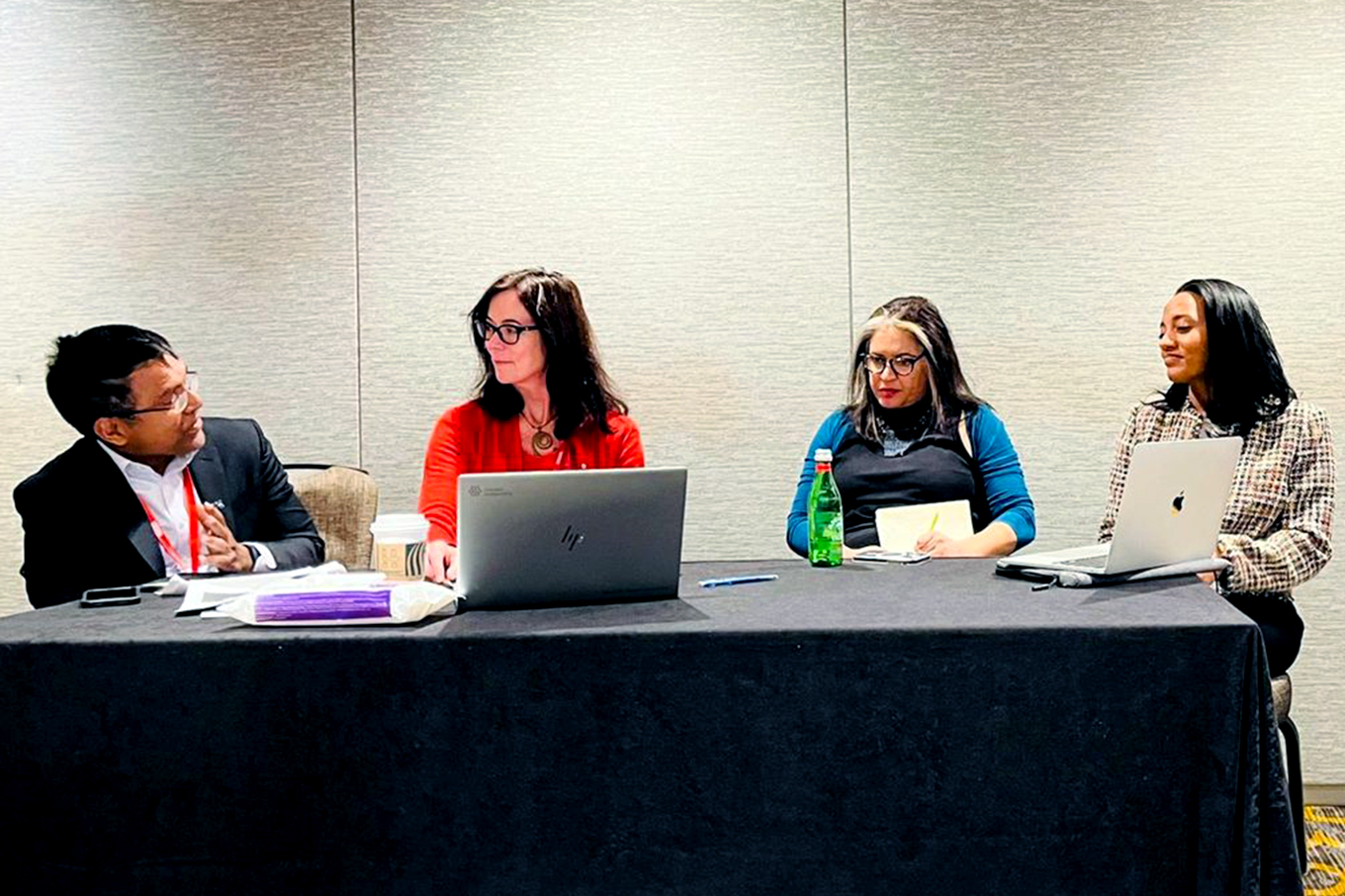“There is a lot of wishful thinking out there”
“Education Out Loud is gathering a force of amazing organizations pushing for change. We are here to support them by assessing whether what they currently do works and help develop ways for their advocacy to be more effective.”
The above is stated by Sam Boering, senior learning facilitator with Netherlands-based Management for Development Foundation (MDF). As globally recognized experts in management and organization development, last year MDF teamed up with the education research experts from the Australian Council for Education Research (ACER) and became a joined EOL global learning partner.
ACER is one of the world’s leading education research centres with an overall goal to build a global understanding on effective teaching and learning to improve education outcomes for millions of children around the world.
“While MDF is focused on project design and management, our spotlight is on measuring the change and to support grantees in harvesting and analysing data to have a robust foundation for their work,” says Sladana Krstic, head of research, ACER UK.
Together the two institutions will help better equip the selected EOL grantees with tools and strengthen their capacity within e.g., education research, advocacy, impact analyses and adaptive management, just to mention a few. They will also be working with selected grantees to pilot research and projects that can be synthesized into learning and suggested approaches to effective advocacy.
“With the tools and experience we bring to the table we will pursue a role in bridging the gap between theory and practice. Social change is incredibly complex but oftentimes we turn to wishful thinking and repetition of what we believe to work, instead of spending the time necessary on gathering the evidence and adapting our advocacy approaches,” says Sam Boering.
Are the change theories robust?
As their first task as EOL-learning partner, ACER and MDF are working with three grantees: School for Life, Institute of Informatics and Development, and SAYWHAT, that have volunteered to partake in a pilot where they are to look closely at their current advocacy approaches and assess how effective they really are.
“We use the organizations theory of change as a point of departure. We have so far worked together to identify the assumptions their change theories and strategies are based on and are in the process of reviewing whether they are robust,” explains Sladana Krstic.
They have worked with the “Social Change Matrix” to identify research questions that the grantees are now working to answer through action research carried out among their target groups.
“It will be very interesting to learn to what degree their assumptions are holding true, but even more so to see, how they can subsequently adapt and adjust based on the new learning. The insights they are producing right now should ideally feed back into each their theory of change causing them to review all their approaches,” says Sam Boering.
ACER and MDF are leading the process and along the way building the capacity of the organizations and equipping them with all the tools required for a fruitful process: stakeholder mapping, analysis of power dynamics, social change matrix, action-based research, outcome harvesting, qualitative analysis of data, and adaptive management just to mention a few.
The action research project will support the three participating coalitions, but according to Sam Boering the main purpose is to use the knowledge created in the process and cascade it to all EOL partners and beyond.
Share the first findings by july
The two institutions combined have more than 130 years of experience in education research and management development which they look forward to contributing. At the same time though they feel that they have a lot to learn from partaking in Education Out Loud. “There is so much we hope to learn. One example is, that we rarely get to focus so much on the local level as we do in this project, and it has been interesting to understand how widespread and complex their local networks are – I look forward to digging into that to understand how these very local groups and individuals can influence and inform the advocacy work,” says Sladana Krstic.
Sam Boering adds: “It is also new to us to work consciously and articulated with the perspective of inclusion. For both ACER and MDF inclusion is a core value as well as the end goal. But often without us articulating it or being conscious about whether we are ourselves being inclusive or whether the methods and tools ensures and contributes to inclusion. Here we have a lot to learn,” he says.
By July, ACER and MDF expect to have synthesized the knowledge from the initial project with School for Life, IID and SAYWHAT, and created a format for the learning to be shared – including a collection of practical tools that organizations can use to assess and improve their advocacy.
“We look forward to being able to share and discuss our findings and decide the next steps,” says Sladana Krstic. Until then she and Sam Boering hesitantly agree to share one insight obtained from their work, that they have found to hold true, across time and space.
“My key message is to always look for the local wisdom – work as close as possible with people on the ground as they are the ones who have the best solutions to their challenges.” says Sladana Krstic.
“And remember that social change is complex. It is crucial to take your time to understand and learn. Rather than just measuring results, I think people should be held accountable for learning and the actions undertaken as result of learning,” Sam Boering adds.
Australian Council for Education Research (ACER)
Australian Council for Education Research (ACER) is a Global Learning Partner for Education Out Loud for 2022-2024.
ACER’s research, planned to be undertaken in several countries in Africa and Asia, will focus on how civil society organizations contribute to improving quality and equity in education through different approaches of education advocacy and policy influencing.
The research findings will document successful approaches and how these can be leveraged to influence education policies, and to facilitate action at local, regional and system levels to meet the needs of communities, including vulnerable and marginalized children.
ACERs mission is to create and promote research-based knowledge, products and services that can be used to improve learning across the lifespan. We are a not-for-profit research organization established in Australia.
ACER was established in Melbourne, Australia, in 1930. From a staff of five, ACER has grown into one of the world’s leading educational research bodies with an expanding international presence.
ACER has been instrumental in the implementation, management, and reporting of large-scale international surveys such as the Trends in International Mathematics and Science Study (TIMSS), Programme for International Student Assessment (PISA), Progress in International Reading Literacy Study (PIRLS), the IEA International Civic and Citizenship Study (ICCS) and the IEA International Computer and Information Literacy Study (ICILS).
ACER has more than 430 staff working in offices in Adelaide, Brisbane, Dubai, Jakarta, Kuala Lumpur, London, Melbourne, New Delhi, Perth, and Sydney.
Management for Development Foundation (MDF)
In 1984, Henk van Loo, an expert in international cooperation, noticed the strong focus on technical expertise in international development projects. He found that the required managerial expertise to achieve sustainable results was often missing.
Using his entrepreneurial spirit, Henk developed an advanced project management training to address this issue. The organisation was named the 'Management for Development Foundation', or 'MDF' in short. Other experts soon joined forces.
Ever since, many other training and consultancy services followed – like organisational development, training and facilitation, monitoring, evaluation and learning, human resource management and recently, private sector development services.
"We don't invent theories; we make them work." That’s MDF's motto when empowering individuals, organizations, and networks. To turn best-practice theories into functional realities, MDF use a model with three components: the tools, the hand, and the mirror.
Empowering people, creating impact are the key words for MDF, whose strength lies in making a discernible management contribution to the positive impact of our clients. MDF serve as a pragmatic, capable, and reliable management partner to maximise results and help create lasting success.
As a learning partner of EOL, MDF will help organisations learn and adapt and bring to EOL practical ways of doing that.

